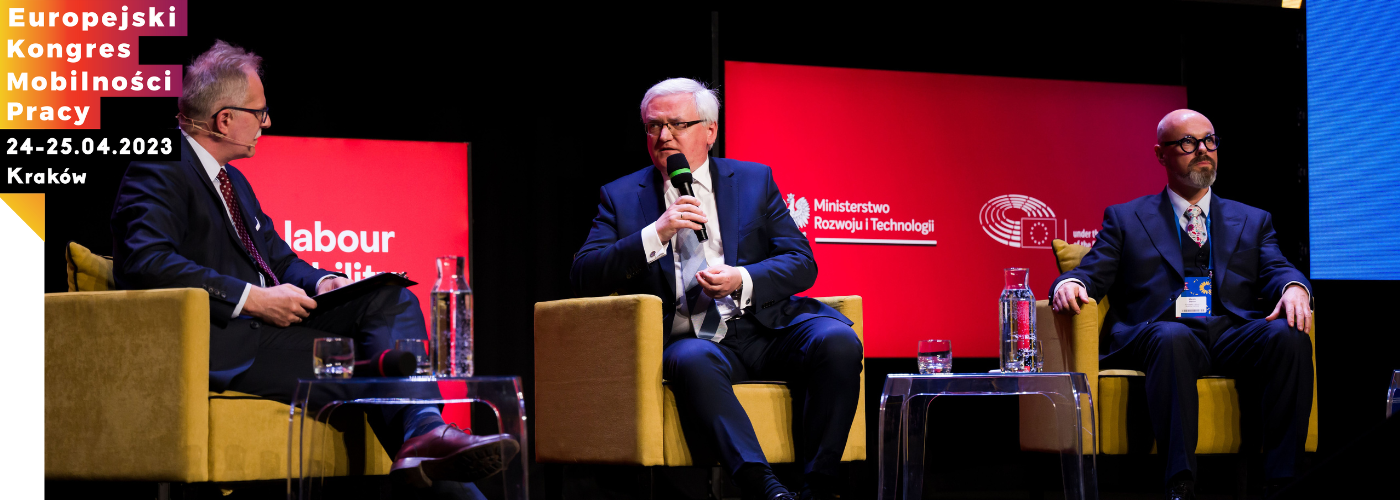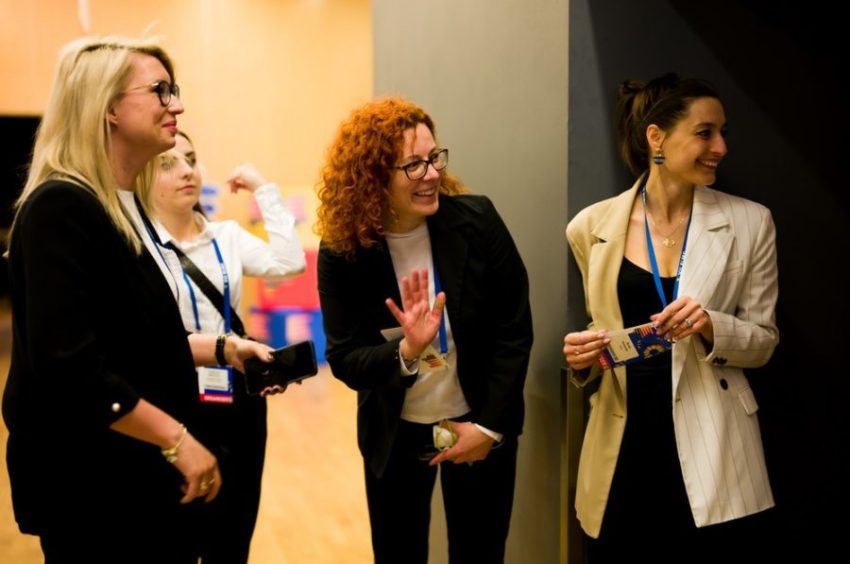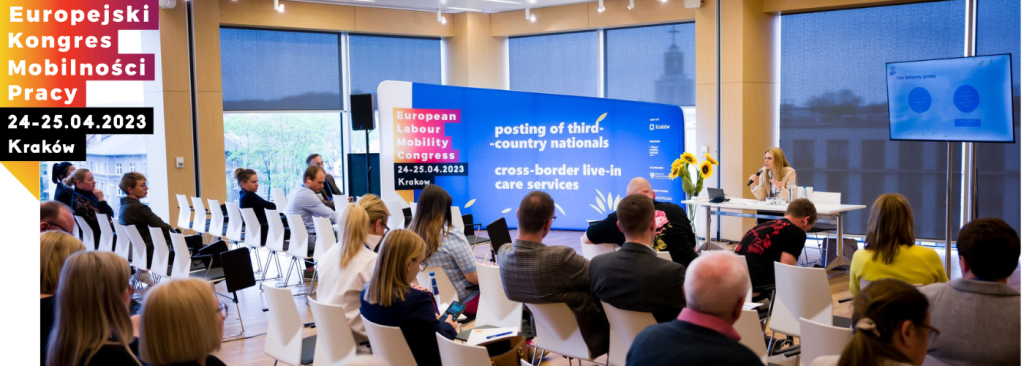Labour mobility of the so-called third-country nationals in the European Union’s Internal Market and the future of live-in care services in the EU were the leading topics of the 7th European Labour Mobility Congress (ELMC), which took place on 24-25 April 2023 at the ICE Congress Centre in Krakow. The Małopolska Region proudly assumed the role of the Regional Partner of this unique event, which is the largest cyclical international conference dedicated to the freedom to provide services, posting of workers and labour mobility in the European Union. It brings together EU Commissioners and officials, ministers of the Polish government, MEPs reporting on key legislative acts, researchers and officials as well as entrepreneurs and all those who care about cross-border labour mobility issues in the EU.
The 7th ELMC was traditionally divided into two thematically separate parts, i.e. the first day – the one of the plenary sessions, and the second day, including a plethora of substantive thematic workshops. The Deputy Marshal of the Małopolska Region Józef Gawron honoured with his presence the closing debate of the Congress’ first day – ‘the Bartuś Barometer’, hosted by the noted Małopolska editor Zbigniew Bartuś.
The Deputy Marshal pointed out that “the economy of the Małopolska Region is indeed feeling the lack of those Ukrainian citizens who have returned to Ukraine due to the war, we can see this, among other things, in the registers of the Regional Labour Office”. – “While a year ago, before the Russian aggression against Ukraine, there were many economic migrants in Małopolska, a lot of war refugees came to us not due to their own choice and that proved a completely different category of persons, as the decision to come was triggered by the war situation. We (as the Małopolska Region – MK) did everything in our power to professionally motivate war refugees, especially women, as the vast majority of them came here (which, however, does not necessarily involve a decision to take up employment). Statutory solutions, including the granting of a PESEL (Personal Identification Number) Number, granting access to education, to the health system, but also access to the labour market were of help to us. On our side, as part of the projects we have been implementing for the people of Małopolska, programmes such as the “Career” (“Kariera”), “Professional Career” (“Kariera zawodowa”)- we have also opened up these to the incoming persons. However, we feel a bit a state of limbo, caused by the war, in the context of the labour market”.
Responding to a question from Zbigniew Bartuś, as to what extent did he believe in an open Małopolska Region, posting workers out into the world and benefitting from it, as well as welcoming them at home and benefitting from it as well, and whether we could be a testing ground to prove to Europe that there is no point in building barriers – the Deputy Marshal Gawron pointed out that “Małopolska Region is and has been open since the beginning of Russian aggression and the outbreak of the war in Ukraine – this we know and this is also confirmed by the Ukrainian community itself. In Małopolska, we have already done a lot and are doing a lot to trigger the utmost motivation of the Ukrainian community, as the war unfortunately may last longer that we can predict. We also need the awareness of the war refugees themselves, their motivation and a certain overall stabilisation – this is a process. On the part of the Board of Directors and the Małopolska Region in general, as a local government, we treat all war refugees from Ukraine as our own, as Małopolska’s citizens who are hospitably received by us. We are looking for solutions for them, so that they can participate in the development of Małopolska, also economically” – concluded the Deputy Marshal Józef Gawron.
Discussants on the panel in which the Deputy Marshal Gawron took part all agreed that the large number of people from Ukraine in Poland (also in Małopolska Region) is a gift, not a complicated problem in itself. It is therefore well worthwhile for citizens and decision-makers in other Member States to treat friends from other Member States as their own citizens and to learn from Małopolska how to treat visitors from third countries as their own. Thus, as stated by the participants of the earlier panels during the 7th ELMC – there is a need for “trust and cooperation” and European-wide thinking as to the practice of the solutions applied.
The second part of the 7th European Labour Mobility Congress covering substantive thematic workshops – confirmed the relevance of these conclusions in practice, especially in the area of the posting of third-country nationals in the European Union.
The participants of the Congress have already set their sights on their next meeting during the 8th European Labour Mobility Congress – all welcomed in the hospitable Małopolska Region.
Marcin Kiełbasa Ph.D.



